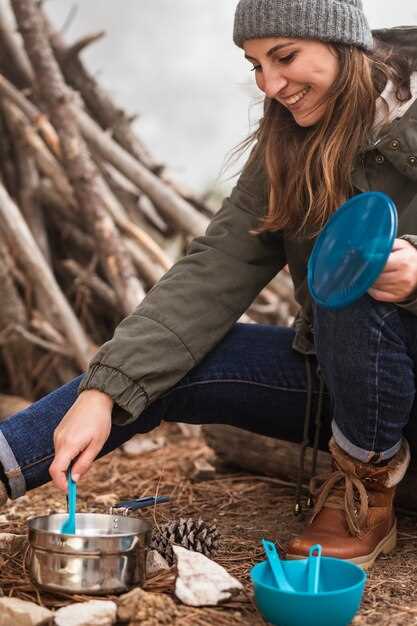
When venturing into the great outdoors for a hunting trip, the focus is often on tracking game and ensuring a successful day. However, one critical aspect that can make or break your experience is hydration. Maintaining proper fluid levels is essential not just for overall health, but for enhancing your physical performance and mental sharpness in the field.
Hunting can be a physically demanding activity that requires long hours of focus and endurance. Dehydration can lead to fatigue, dizziness, and decreased concentration, severely impacting your ability to track and make ethical decisions while in the hunt. Therefore, ensuring that you stay hydrated should be a top priority on your list of preparations.
In addition to hydration, nourishing your body with the right foods is equally important. A well-balanced diet rich in carbohydrates, proteins, and healthy fats can provide sustained energy to keep you alert and capable throughout the day. It is crucial to choose foods that are not only nutritious but also easy to carry and consume while on the move.
By prioritizing both hydration and nutrition, hunters can enhance their experience in the wild, improve their performance, and ensure they have the energy needed to face whatever challenges the day may bring. Whether you are a seasoned hunter or a novice, understanding the importance of these elements can make all the difference in your hunting success.
Optimal Water Sources and How to Purify Them

When hunting in the backcountry, locating reliable water sources is vital for maintaining hydration and overall well-being. The best sources are typically found in natural environments, including streams, rivers, lakes, and springs. Each of these sources can present unique advantages and considerations for hunters.
Streams and Rivers: Flowing water is often one of the safest sources due to its movement, which helps to prevent stagnation and the buildup of contaminants. Look for clear, fast-moving segments, avoiding areas near livestock or dense human activity.
Lakes and Ponds: Still water sources may be abundant, but they often hold a higher risk of contamination. Always approach these locations with caution, examining the surrounding area for signs of pollution or animal activity. If you must collect water from a stagnant source, utilize purification methods to ensure safety.
Springs: Natural springs are ideal as they usually contain clean, filtered water emerging from the ground. If encountered, these can be excellent spots for filling your water supply, though it’s crucial to observe the environment for potential contaminants above the spring.
Regardless of the source, purifying water should always be a top priority. Common methods for purification include:
Boiling: Boiling water for at least one minute effectively kills most pathogens. At higher elevations, where boiling points are lower, extending the boil time is recommended.
Water Filters: Portable water filters are a convenient option for the backcountry. They can remove bacteria, protozoa, and some viruses. Choose a filter with a pore size of 0.2 microns or smaller for optimal protection.
Chemical Purification: Tablets or drops containing iodine or chlorine dioxide can also be used to disinfect water. It’s essential to follow the manufacturer’s instructions for effectiveness and required wait times.
UV Light Purifiers: These devices utilize ultraviolet light to kill pathogens. They are lightweight and effective but require batteries, making them less reliable in prolonged outings without power availability.
When hunting in backcountry regions, understanding and identifying optimal water sources, along with implementing reliable purification methods, is essential for staying hydrated and ensuring a successful outing.
Portable Nutrition Solutions for Extended Hunting Trips
When venturing into the backcountry for extended hunting trips, maintaining proper nutrition is essential for both energy levels and overall performance. Portable nutrition solutions ensure you stay nourished without the burden of heavy or cumbersome food supplies.
Dehydrated Meals are an excellent choice for backcountry hunters. These meals are lightweight, easy to pack, and require only boiling water for preparation. Options range from hearty stews to breakfast cereals, providing a balanced mix of carbohydrates, proteins, and fats necessary for sustaining energy levels during long days in the field.
Energy Bars come in various formulations, designed to meet the demands of outdoor enthusiasts. They are perfect for quick snacks while on the move, offering a blend of proteins, carbs, and healthy fats. Look for bars with minimal added sugars and natural ingredients to avoid energy crashes.
Nut Butters, available in single-serve pouches, provide a concentrated source of calories and healthy fats. They can be consumed directly or added to meals for an extra boost of nutrition. Almond and peanut butters are popular choices due to their delicious taste and versatility.
Trail Mix is another practical solution for backcountry trips. A good mix includes nuts, seeds, dried fruits, and perhaps some dark chocolate for energy. It offers a well-rounded snack that is high in calories and nutrients, easily customized to your taste preferences.
Hydration Packs are crucial for any extended outing. Many packs come with compartments designed to carry nutrition supplements like electrolyte powders or energy gels. Staying hydrated enhances performance and recovery, making it vital to integrate fluids alongside your food intake.
In summary, planning your nutrition for extended hunting trips in the backcountry requires portable and lightweight solutions. Focus on a combination of dehydrated meals, energy bars, nut butters, trail mixes, and hydration strategies to optimize your energy levels and enhance your hunting experience.
Signs of Dehydration and Nutritional Deficiency to Watch For

Understanding the signs of dehydration is crucial while hunting, as they can significantly impact performance and safety. One of the first indicators of inadequate hydration is persistent thirst. If you find yourself constantly seeking water, it may be time to drink more fluids. Dry mouth and cracked lips are also common symptoms, signaling the body’s need for replenishment.
As dehydration progresses, you may experience fatigue and weakness, making it difficult to concentrate on your surroundings or tasks at hand. Dizziness and lightheadedness can occur, especially when standing up quickly, which could compromise your agility in the field.
Beyond dehydration, nutritional deficiencies can also hinder your ability to hunt effectively. Look for signs such as constant fatigue or lack of energy, which may indicate an insufficient intake of essential nutrients. Cognitive struggles, like impaired judgment or difficulty remembering directions, can stem from a lack of nutrients vital for brain function.
Physical symptoms can include muscle cramps, which may result from electrolyte imbalances due to inadequate water or nutrient consumption. If you notice changes in your skin, such as excessive dryness or poor elasticity, this could be a direct reflection of both hydration and nutritional status.
Monitoring these signs is essential to maintain peak performance while hunting. Ensure you remain hydrated and consume a balanced diet to avoid these adverse effects.